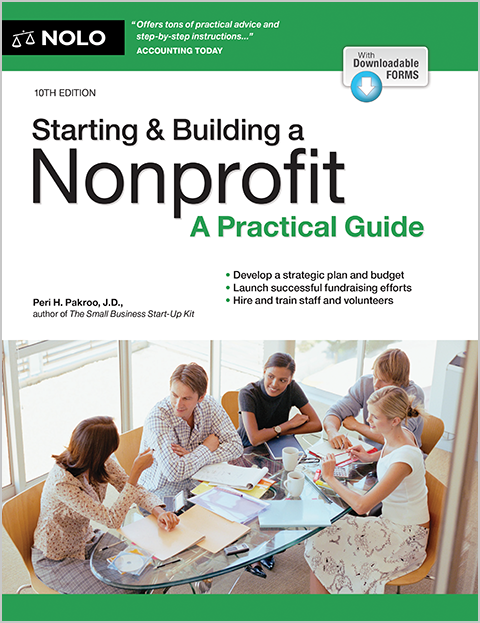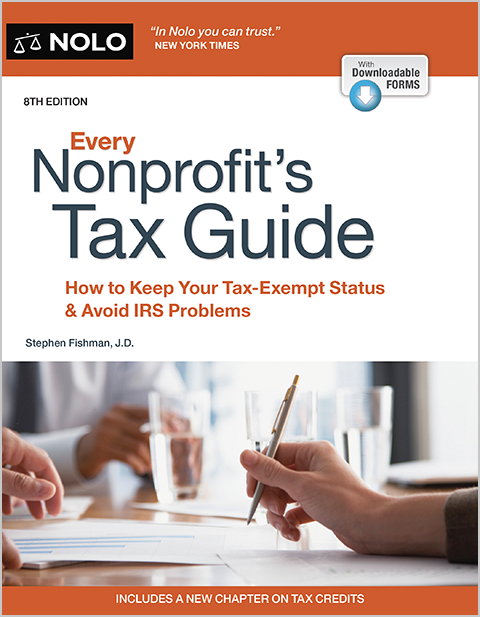Your nonprofit's annual filing requirements might include state renewals, fundraising reports, and tax returns. In addition to meeting your annual filing requirements, you’ll want to keep good financial reports for internal management purposes and possibly to share with stakeholders.
After you form a nonprofit corporation, you must file reports with state and federal agencies to keep the organization in good standing and to avoid penalties. Your organization's filing requirements will depend on the state where you formed the nonprofit, your fundraising activities, and whether your organization is exempt from state and federal taxes. If you fail to submit the required filings, the government might impose fines, take away your state and federal tax exemptions, dissolve your nonprofit, or do all three.
State Periodic Reports
Most states require nonprofits to file annual or biennial reports with their business regulatory agency, such as the Secretary of State. In the report, you confirm or update information such as your organization's address, registered agent, and names of directors. Some states charge nonprofits a fee to submit the filing. Review our 50-state guide on forming a nonprofit for more information about state filings.
Fundraising Reports and Renewals
If your organization obtained a fundraising permit, check with the licensing agency to determine if and when you must file reports or renew. The type of report you will file will depend on your state's requirements, total revenue, and fundraising activity. For example, when you obtain a permit to conduct a raffle, bingo game, or other gambling event, your state might require you to submit a report on how much money the event brought in, and a certification that your organization used the money for a charitable purpose.
In some states, if your organization brought in little or no revenue, you will not have any reporting requirements, while if you brought in significant revenue (such as over $50,000), the state agency might request detailed financial reports of your expenses and sources of income. If you fundraise across state lines and registered in more than one state, be sure to check with each state agency with which you registered.
Federal Tax Returns
Your federal tax reporting requirements will depend on whether the IRS recognizes your organization as an exempt organization, meaning it is not responsible for federal income tax. When it comes to tax-exemption, nonprofit corporations fall under one of three categories:
Nonprofit corporation without tax exemption: You can form a nonprofit corporation without obtaining a tax exemption, which means your organization will be responsible for filing and paying taxes as a corporation. Read more about corporation taxation
Nonprofit corporation that applied for and obtained tax exemption: If your organization applied for and obtained 501(c)(3) tax exemption from the IRS, you must file annual returns to maintain your exemption. Depending on the amount of your organization's gross receipts, you must file Form 990, 990-EZ, or 990-N.
Nonprofit church: Churches automatically have tax-exempt status, and in most cases, organizers of churches do not have to apply for tax exemption or file annual returns with the IRS. It's a good idea to check with a tax attorney or accountant to verify your church's requirements because, as explained below, your nonprofit could face serious penalties for failing to file required returns.
The tax filing obligations explained above may be only part of your nonprofit's federal tax reporting requirements. Many factors can complicate your tax obligations, such as whether your nonprofit earned money from activities unrelated to your organization's charitable mission (which you can read more about here). Consult with an accountant or tax attorney for specifics, or check out our book Every Nonprofit's Tax Guide.
State Tax Returns
The state where you formed your nonprofit might require you to file annual state tax returns. The forms you must file will depend on your gross revenue and exempt status. If your nonprofit does not have exempt status, you will likely file and pay taxes as a corporation; while if you have an exempt organization, you will typically submit an informational return. If your organization obtained exemptions from sales or property tax, you might be responsible for additional tax returns or renewal forms to maintain those exemptions.
Consequences of Failing to File
Your nonprofit might face serious penalties for missing your annual filings. If you fail to file state reports, the state might impose fines, and after a period of noncompliance (such as three years), dissolve your nonprofit.
If you fail to file a required federal form 990, the IRS may impose a penalty of $20 for each day it is late (generally capped at 5% of your organization's gross receipts). If you miss three consecutive years of filing, the IRS will automatically revoke your tax-exempt status. After the IRS revokes your federal tax exemption, the state will likely also revoke your tax exemption. Following revocation, your organization will be responsible for corporate income tax at both the federal and state level, which can be a significant amount of money. If you find yourself in this position, it is best to consult with an attorney.
Nonprofit Financial Reports
Keeping accurate and informative financial reports is essential to the success of any nonprofit. Although some of your financial reports might be included in the annual reports described above, especially your Form 990, most of your financial reports are not included in your annual reports and do not need to be made public. The financial reports described below are needed primarily for internal management, although you might share them with donors and other stakeholders. Sharing your financial information can give you a marketing advantage when it comes to soliciting contributions. Sharing will demonstrate to the public that your organization is trustworthy and using its resources to further its charitable mission. You might not share every monthly balance sheet, but you could present your financial data in an annual report, as discussed below.
Types of Financial Reports
Financial reports include a number of documents that provide information about the organization's current assets, income, expenses, and financial projections. The types of reports your nonprofit might produce include:
Annual budgets: Your budget will list the estimated revenue and expenses for the upcoming year. You'll create the budget based on the organization's financial history and your goals for the future. Making your budget involves breaking down your income and expenses into categories, such as salaries, utilities, donations, and grant income. Throughout the year, you can compare your actual income and expenses to your budget to determine if you are on track to meet your goals.
Balance sheets: Also known as a statement of financial position, the balance sheet shows the organization's current assets (such as money in the organization's checking account) and liabilities (including business loans and other debts).
Income statements: Also known as a statement of activities, the income statement tells you the income and expenses for a specified period (such as the previous month) as compared to the budget.
Statements of cash flow: This statement gives information about money coming into and going out of the organization. It is similar to the income statement but doesn't include depreciation information (an accounting of the reduced value of your assets, such as aging computers).
Statements of functional expenses: This statement shows your expenses, which are organized by function and classification. For example, the income statement might show that you spent $100 on printing, and your statement of functional expenses might specify that you spent $50 to print programming handouts, and $50 to print fundraising materials.
How to Create Financial Reports
To determine who is responsible for creating and managing your financial reports, review your organization's bylaws. Typically, the bylaws assign financial duties to the treasurer (or another officer, if your board does not have a treasurer). The treasurer can solicit help from an outside accountant or bookkeeper to track expenses, create reports, and file tax returns. In addition, executive directors and other staff members often work with the treasurer to create the budget, because the staff is familiar with the day-to-day needs of the organization and can make suggestions about where to allocate costs.
Internal Disclosure Rules: Directors and Members
Review your organization's bylaws and the laws of your state to determine which reports your directors and members have the right to access. Typically, board members have the right to inspect all financial reports, and new director recruits may request to review your reports before joining the board. If you have a membership nonprofit (read more here to determine whether your organization is a membership or non-membership nonprofit), members likely have the same right to access.



